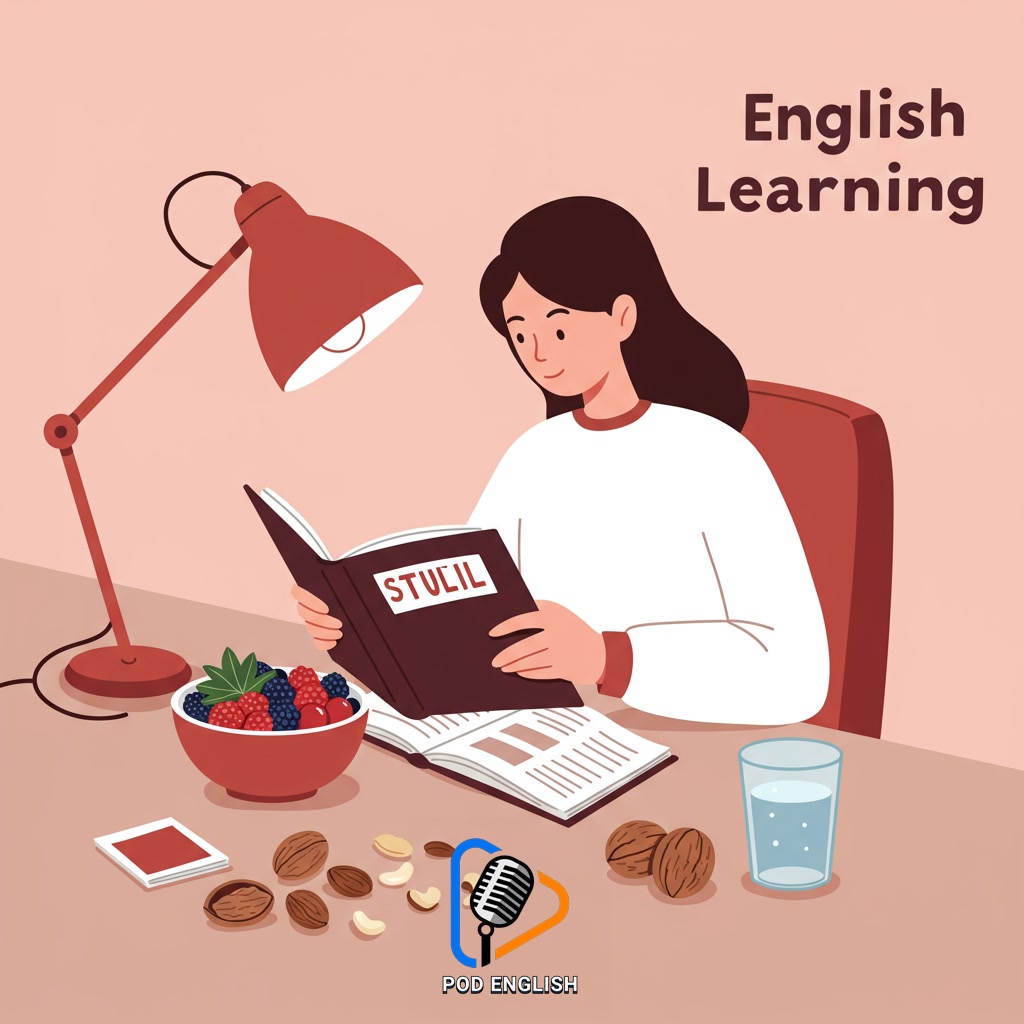Learn English
Boost Your English Learning with a Balanced Diet
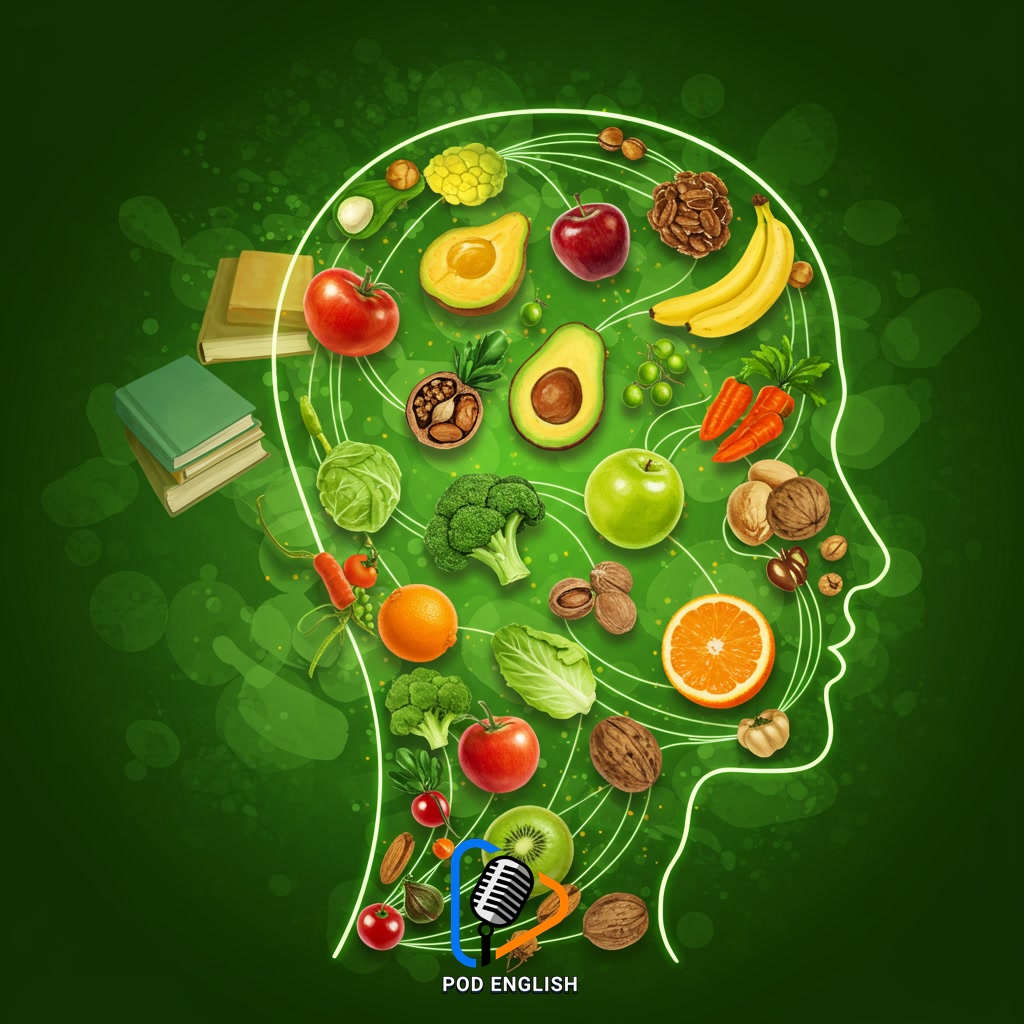
A balanced diet can significantly enhance your cognitive function, which is crucial for effective English learning. Proper nutrition fuels the brain, improving focus, memory retention, and overall mental stamina required for language acquisition. By supporting brain health through diet, you can create optimal conditions to accelerate your progress in learning English. This approach highlights how integrating healthy eating habits can be a valuable strategy to boost your language skills.
Table of Contents
- Section 1: The Brain-Diet Connection: Fueling Your English Learning
- Section 2: Essential Nutrients and Foods for Cognitive Boost
- Section 3: Hydration’s Critical Role in Focus and Memory
- Section 4: Foods to Limit or Avoid for Optimal Learning
- Section 5: Practical Tips for Implementing a Brain-Healthy Diet
- Section 6: Integrating Diet with Effective English Learning Strategies
Section 1: The Brain-Diet Connection: Fueling Your English Learning
Your brain is the primary tool you use when learning English, and like any complex tool, it needs the right fuel to perform at its best. The food you eat directly impacts your cognitive functions, including focus, memory, and processing speed – all vital for language acquisition. Think of your brain as a high-performance engine; feeding it with nutritious foods, such as fruits, vegetables, lean proteins, and healthy fats, provides the essential nutrients that support neurotransmitter production and brain cell health. This optimal nutritional state improves your ability to concentrate during lessons, retain new vocabulary and grammar rules, and recall information more quickly during conversation or practice. By making conscious dietary choices, you’re not just eating healthy; you’re actively enhancing your brain’s capacity to learn English effectively and efficiently.
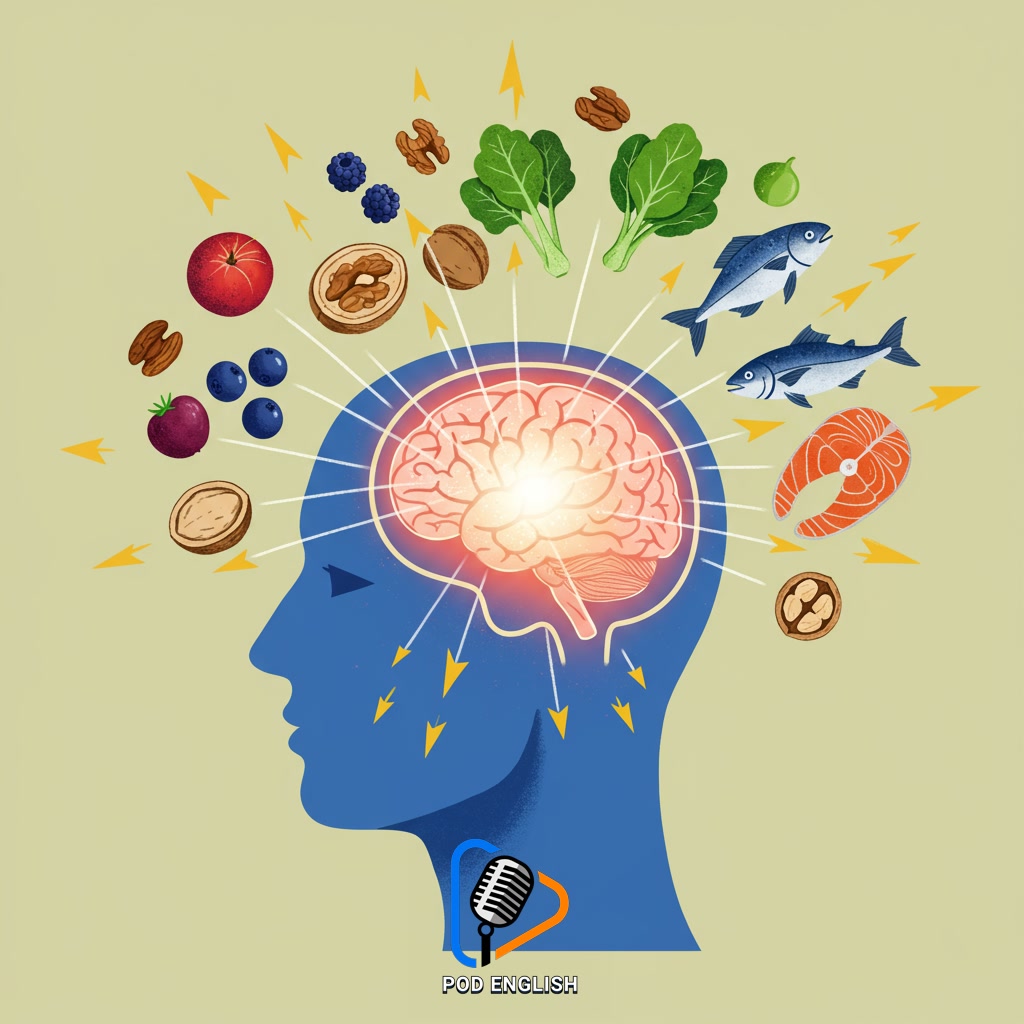
Section 2: Essential Nutrients and Foods for Cognitive Boost
To provide your brain with the optimal fuel it needs for focused English learning, certain nutrients are key. Omega-3 fatty acids, found in fatty fish like salmon and walnuts, are vital for brain structure and function, supporting memory and cognitive speed. Antioxidants in colorful berries, leafy greens, and dark chocolate protect brain cells from damage. B vitamins, present in whole grains and eggs, are essential for energy production and neurotransmitter synthesis, crucial for maintaining focus and mental stamina during study sessions. Additionally, foods rich in Vitamin E, like nuts and seeds, can support brain health over time. Incorporating a variety of these nutrient-dense foods into your daily diet creates a powerful foundation for enhanced concentration, improved recall of vocabulary and grammar, and sustained energy throughout your English learning journey.
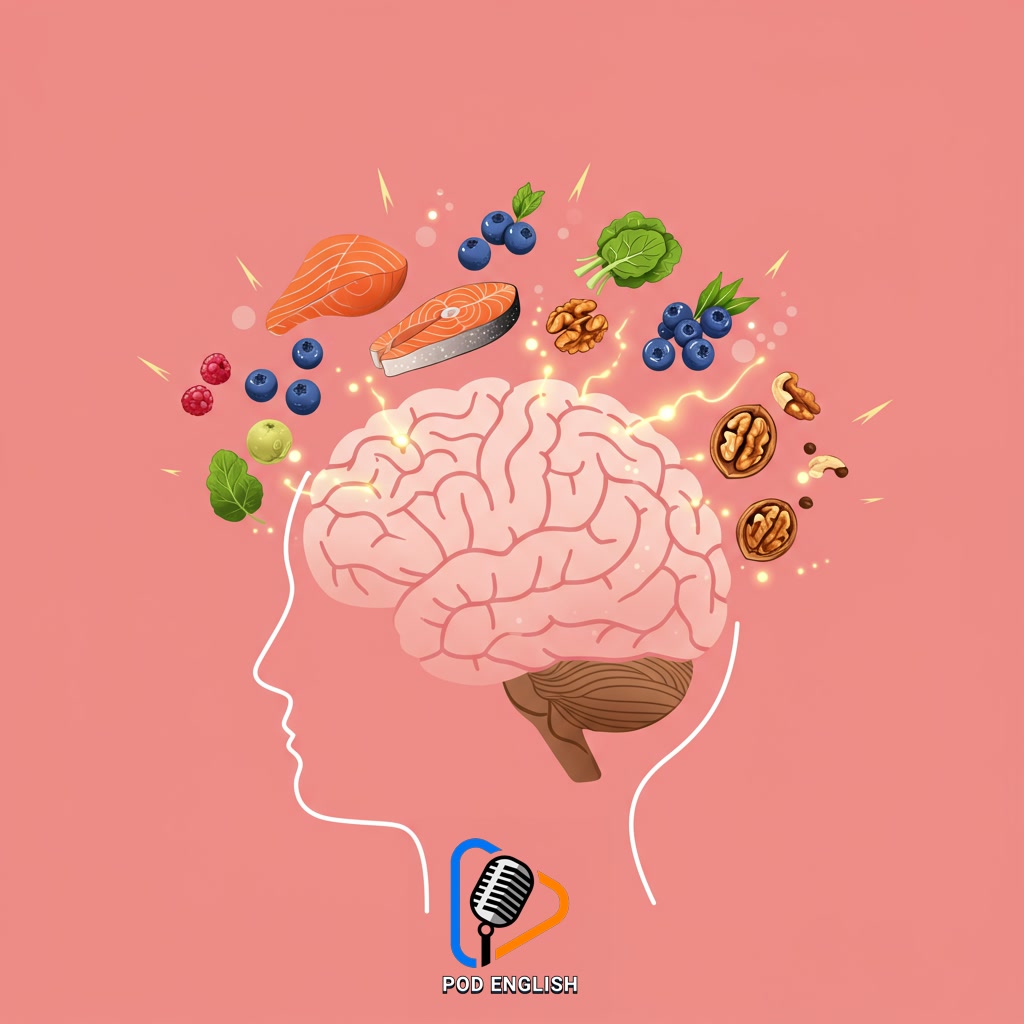
Section 3: Hydration’s Critical Role in Focus and Memory
Building on the importance of key nutrients, let’s talk about something even more fundamental: water. Staying properly hydrated is absolutely vital for your brain to function at its best, especially when you’re concentrating hard on learning English. Even mild dehydration can significantly affect your cognitive performance, making it harder to focus on new vocabulary or grammar rules and hindering your ability to retain information in your memory. Water helps ensure good blood flow to the brain, delivering essential oxygen and nutrients and supporting the production of neurotransmitters crucial for concentration and learning. Therefore, keeping a water bottle handy and sipping regularly throughout your study sessions is a simple yet powerful strategy to maintain peak mental clarity and accelerate your English learning progress.
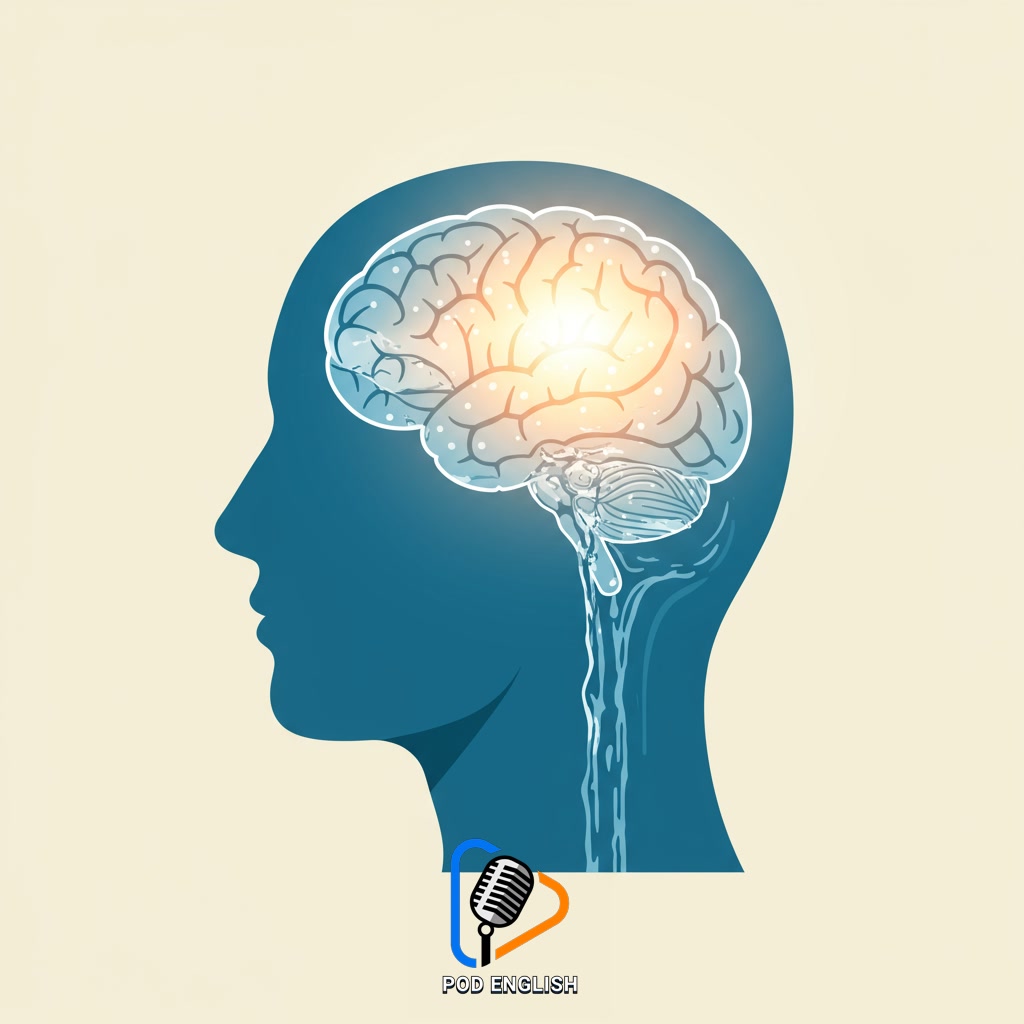
Section 4: Foods to Limit or Avoid for Optimal Learning
Following our discussion on essential nutrients and hydration, it’s equally important to be aware of what can hinder your cognitive function. Certain foods and drinks, while perhaps enjoyable in moderation, can negatively impact focus, energy levels, and overall brain performance crucial for learning English. These often include sugary snacks and drinks, highly processed foods, excessive caffeine, and alcohol. Consuming too much sugar can lead to energy crashes, making it hard to concentrate during study sessions. Processed foods often lack the vital nutrients your brain needs and can contribute to inflammation. Limiting these items helps maintain stable energy, improves focus, and supports better memory consolidation, creating a more effective environment for language acquisition.
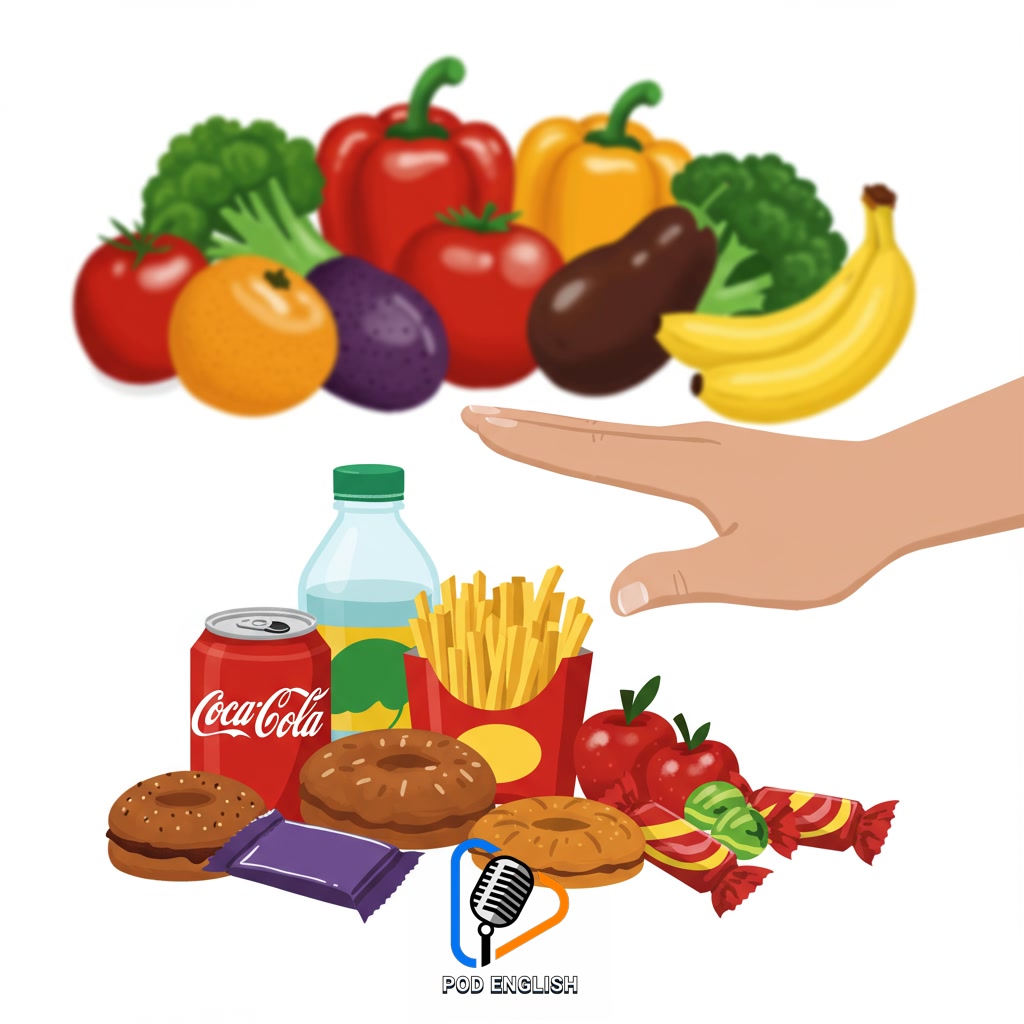
Section 5: Practical Tips for Implementing a Brain-Healthy Diet
Transitioning from understanding what hinders cognitive function, let’s focus on practical ways to nourish your brain for better English learning. Implementing a brain-healthy diet doesn’t require drastic changes; start by incorporating more whole foods like fatty fish rich in omega-3s, vibrant berries packed with antioxidants, nuts and seeds, and leafy green vegetables into your meals. Aim for regular eating patterns to maintain stable energy levels, avoiding the crashes that disrupt focus. Stay consistently hydrated throughout the day, as even mild dehydration can impair concentration and memory. Planning your meals can help you make healthier choices and reduce reliance on quick, processed snacks that offer little nutritional value for brain function. By making these simple, practical adjustments, you create an optimal internal environment that supports sharper focus, improved memory retention, and sustained mental energy crucial for mastering English.
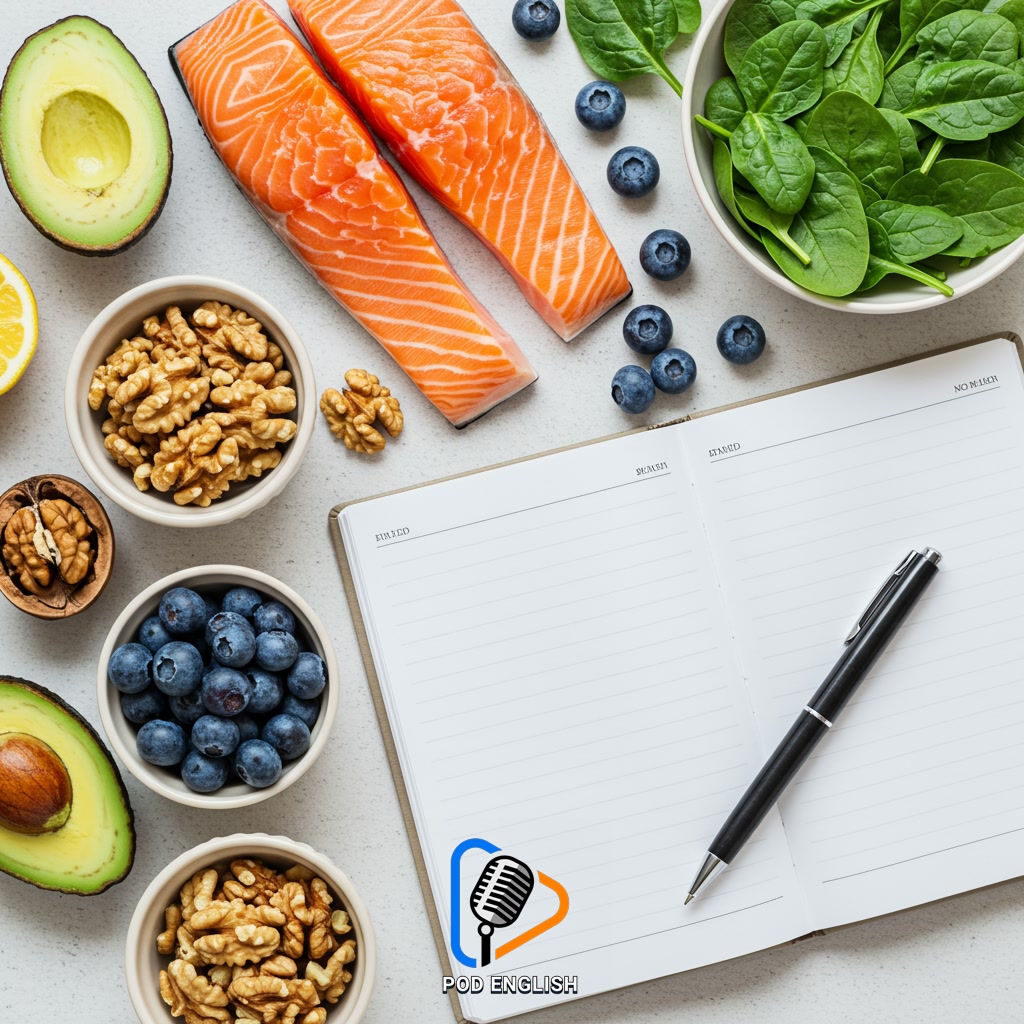
Section 6: Integrating Diet with Effective English Learning Strategies
Transitioning from understanding what hinders cognitive function, let’s focus on practical ways to nourish your brain for better English learning. Implementing a brain-healthy diet doesn’t require dramatic changes but smart integration into your study routine. Consider timing nutrient-rich snacks, like a handful of berries or nuts, before or during intensive study sessions to maintain focus and energy levels. Ensure regular hydration with water throughout the day, as dehydration can impair concentration. Incorporating foods rich in omega-3 fatty acids (like fish), antioxidants (fruits and vegetables), and complex carbohydrates (whole grains) provides the sustained fuel your brain needs for memory consolidation and cognitive processing. By consciously pairing these dietary choices with effective study methods—such as active recall or consistent practice—you build a powerful synergy. This holistic approach supports the mental stamina required to tackle challenging grammar rules or absorb new vocabulary, making your English learning journey more efficient and rewarding.
